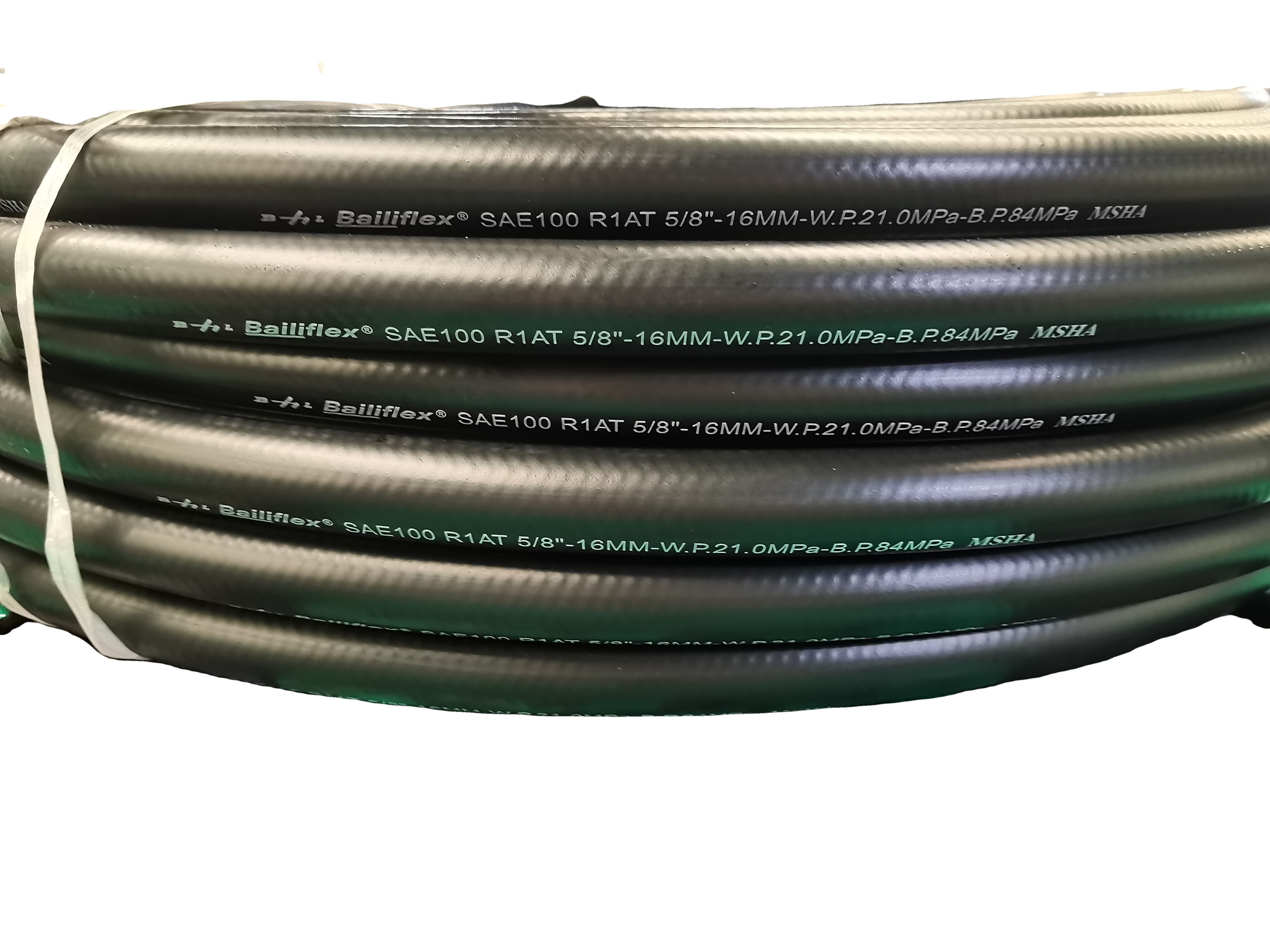Oct . 12, 2024 18:45 Back to list
Innovative Solutions for Modern Hydraulic Hose Manufacturing and Production Processes
Advanced Technology for Hydraulic Hoses Revolutionizing Manufacturing
In the increasingly competitive landscape of industrial manufacturing, the incorporation of advanced technology has become essential for ensuring efficiency, quality, and sustainability. This is especially true in the production of hydraulic hoses, critical components utilized across various industries—including construction, agriculture, and manufacturing. As technology continues to evolve, hydraulic hoses factories can adopt innovative methods to enhance production processes, improve product performance, and meet the growing demand for high-quality hydraulic systems.
The Importance of Hydraulic Hoses
Hydraulic hoses are vital for transmitting power between various hydraulic components. They are designed to handle high pressures and are often exposed to harsh environmental conditions. As such, the quality and reliability of these hoses are paramount, underscoring the need for advanced manufacturing technologies that can guarantee superior performance and longevity.
Automation in Manufacturing
One of the most significant advancements in hydraulic hose manufacturing is the integration of automation. Automation technologies—such as robotics and AI—streamline production processes, minimize human error, and increase efficiency. Automated systems can handle repetitive tasks such as cutting, crimping, and testing hoses with a precision that manual methods cannot match. For instance, robotic arms can be programmed to handle intricate crimping operations, ensuring a consistent and high-quality connection between the hose and its fittings.
Moreover, automation allows for real-time data collection and analysis, empowering manufacturers to monitor production lines closely. This data can help identify bottlenecks, predict maintenance needs, and optimize operations, ultimately leading to reduced downtime and enhanced productivity.
Advanced Material Science
Another area where advanced technology has made a significant impact is in the field of materials science. The development of new materials, including synthetic rubber and thermoplastic elastomers, has enabled manufacturers to produce hydraulic hoses that are not only durable but also lightweight and flexible. These materials can withstand higher pressures and temperatures, pushing the boundaries of what hydraulic systems can achieve.
Technologies such as computer-aided design (CAD) play a crucial role in this area, allowing engineers to simulate and test various material combinations and geometries before actual production. This results in a more reliable and tailored product that meets specific market requirements, thereby enhancing customer satisfaction.
advanced technology for hydraulic hoses factory

Enhanced Testing and Quality Control
Ensuring the quality and safety of hydraulic hoses is another critical aspect of modern manufacturing. Advanced testing technologies, including non-destructive testing (NDT) methods and sophisticated pressure testing systems, allow for thorough evaluations of hose integrity. These methods can detect microscopic flaws and potential points of failure that might go unnoticed with traditional testing.
Additionally, the implementation of quality management systems (QMS) integrated with AI can help manufacturers continuously monitor product quality throughout the production cycle. Machine learning algorithms can predict potential defects based on historical data, allowing manufacturers to address issues before they impact production outcomes.
Sustainability Initiatives
With the growing emphasis on sustainability, hydraulic hose factories are also leveraging advanced technology to reduce their environmental impact. Innovations in recycling technologies allow manufacturers to reclaim materials from used hoses, thereby minimizing waste and conserving resources. Additionally, energy-efficient manufacturing processes reduce the carbon footprint of production activities.
Moreover, the development of biodegradable and recyclable hose materials is a testament to the industry's commitment to sustainability. By embracing eco-friendly practices, manufacturers can appeal to a growing base of environmentally conscious consumers and uphold corporate social responsibility standards.
Conclusion
The modernization of hydraulic hose manufacturing through advanced technology is transforming the industry. Automation, enhanced materials, rigorous testing, and sustainability initiatives are all contributing to more efficient, reliable, and environmentally friendly production processes. As manufacturers continue to invest in these technologies, the future of hydraulic hoses looks promising, with the capability to support increasingly complex and demanding applications across various sectors.
In conclusion, the integration of advanced technologies in hydraulic hose manufacturing is not merely a trend; it represents a paradigm shift that will define the future of the industry. Embracing these innovations not only drives improved performance and efficiency but also positions manufacturers to meet the evolving needs of an ever-changing market landscape.
-
Best Four Steel Wire Spiral Hose Hydraulic R12 – Durable High-Pressure Hose Manufacturer
NewsJul.08,2025
-
High-Quality 1/4 Hydraulic Hose – Soft, Flexible & Durable Rubber Hoses for Industrial Use
NewsJul.08,2025
-
1 1 2 Inch Hydraulic Flexible Hose - Durable, Reliable, High-Pressure Solutions
NewsJul.07,2025
-
High-Quality 1 2 Rubber Hose - Durable, Flexible Hydraulic Solutions
NewsJul.07,2025
-
Discover SAE Hydraulic Hose Types - High Quality & Durable Hoses from Leading Factory Supplier
NewsJul.06,2025
-
High Pressure Wire Hydraulic Rubber Hose Supplier Durable & Reliable 1SN Hose Solutions
NewsJul.06,2025
